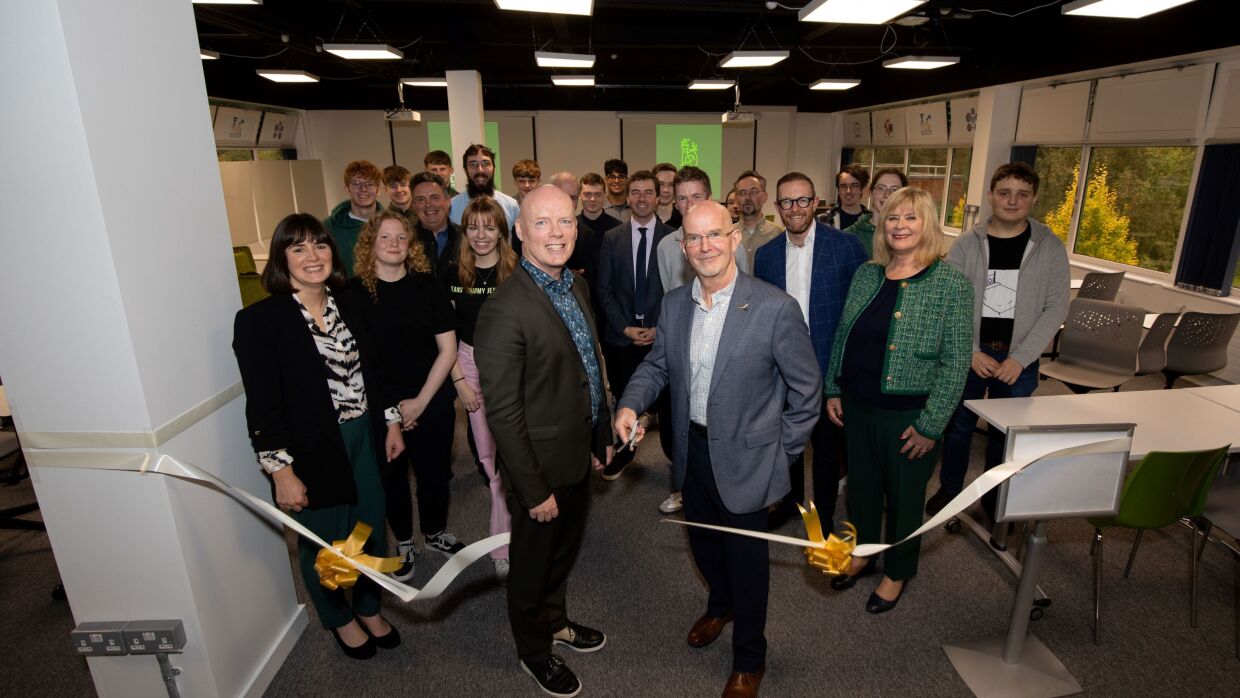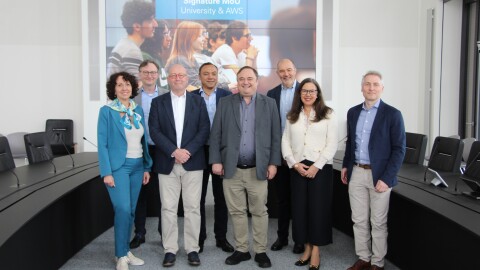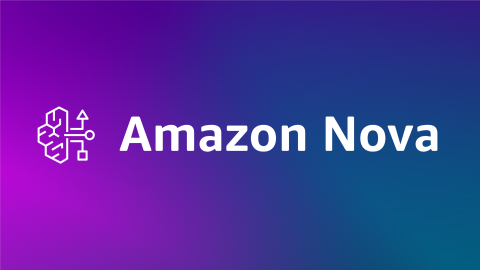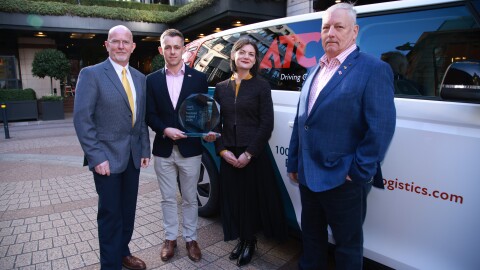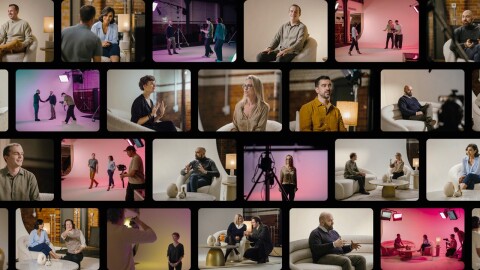A year on from the launch of a prestigious new fellowship programme in collaboration with the University of Limerick, AWS is continuing to champion future Irish talent. The long-term collaboration saw AWS support the launch of a new Global Fellowships programme as part of the university’s BSc/MSc in Immersive Software Engineering (ISE) - an integrated Bachelor and Master’s degree programme where students learn by doing, and spending time in industry working with companies, including AWS. The programme is already showing its potential to positively impact the Irish workforce.

Pictured is Neil Morris, Country Lead for Amazon Web Services (AWS) and J.J. Collins, UL with ISE 1st year students.
Confidence is key
Having worked with the ISE students over the past year, Stephen Kinsella, Professor of Economics at the University of Limerick, explained how the degree programme is changing the game, and the impact it has had on students.
“The thing that is most obviously different with these students is their level of confidence in themselves and their own abilities. They’re confident because they're competent,” Stephen said. “We designed the course by asking ‘what does an amazing software engineer look like? What set of soft skills do they need?’
“And in order to achieve that goal, we knew we needed to have more internships, because in software engineering - as distinct from most other fields - it’s very important that you learn by doing. We created learning processes in such a way that, when the students go into companies, they hit the ground running and they learn as fast as they possibly can.”
Setting students up for success in the workplace
Neil Morris, Country Lead of AWS in Ireland, made a visit to the University of Limerick to meet with students on the course, as well as the university’s staff. He spoke of the value that graduates with industry experience bring to the workforce.
“Amazon CEO Andy Jassy said a few years ago that “There is no compression algorithm for experience”. It takes two years to get two years’ experience. So, isn’t it a great thing to have an opportunity to fast-track that during undergraduate study? There is no substitute for the experience of solving problems in the real world,” Neil said. “In order to give students the best possible start to life in the workplace, it’s vital that they learn by doing - and that’s what makes this course so valuable.
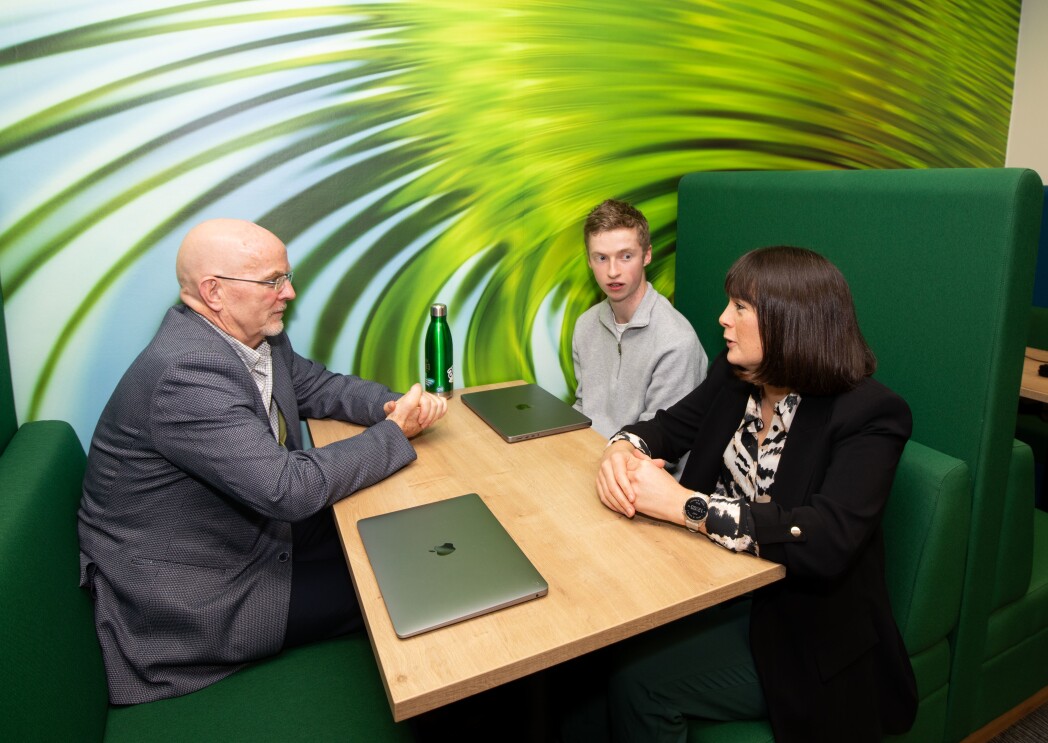
“When these students come out of education and into employment, we know the skills they are learning today will be applicable in the workplace tomorrow. That’s why we’re determined to continue championing young talent and supporting them in their journey as tech innovators. When businesses and educational bodies collaborate, they have the power to shape the workforce of tomorrow, and I encourage the wider tech industry to continue considering how they can come together to achieve this.”
Building a unique educational experience
Second year ISE student Karl Gilmartin found that his first-year residency with AWS taught him not just new technical skills, but a range of soft skills that will stand him in good stead to become a great software developer.
“More than anything, the programme has given us the confidence to express our ideas and become better communicators,” Karl said. We learn the technical skills, but we’ve also been taught how to develop the soft skills that you need to prepare yourself for industry. Things like ‘how do I work in a team?’ or ‘how do I develop leadership skills?’ And then ‘how do I merge that all into one to become a good software developer?’”
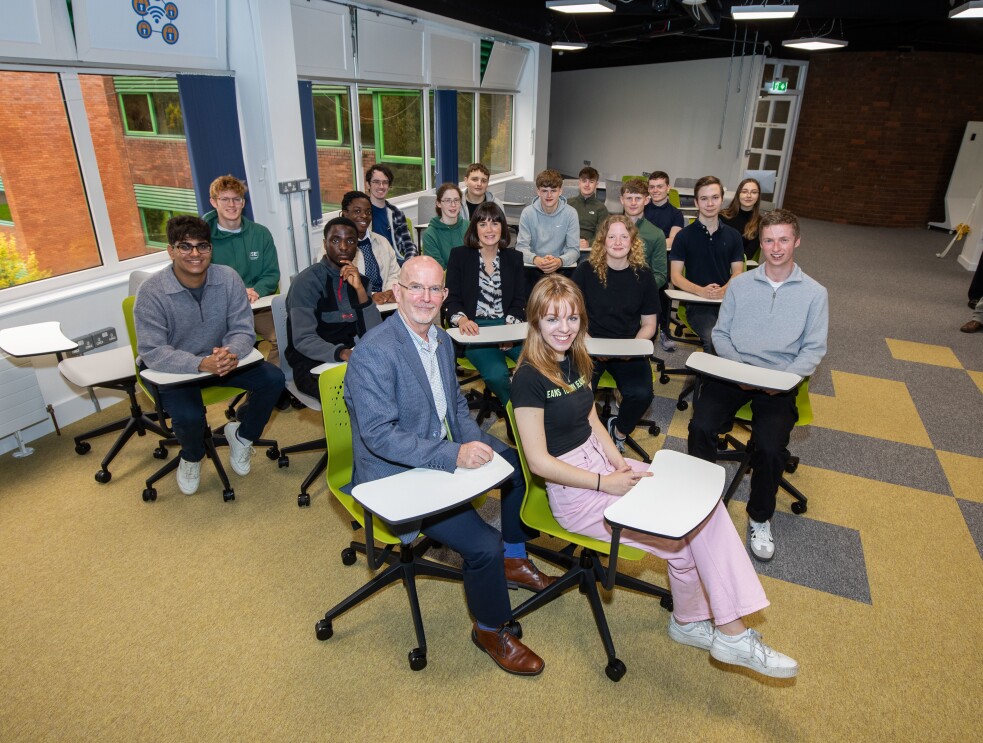
Pictured is Neil Morris, Country Lead for AWS and Sinead O’Donnell, Senior Operations Manager AWS with ISE 1st and 2nd year students.
Karl said he is now bringing his workplace experience back into the University of Limerick, and is keen to use what he has learned to help this year’s cohort of first year students to excel - including integrating Amazon Leadership Principles into the way he and his fellow students learn.
“I’m putting myself in the shoes of the first years and asking if I were in their position again, what is the one thing I would want to know?
“We’re one big community working together and the fellowship allows us to learn from people in the industry who recently finished university, so we’re hearing fresh perspectives and knowledge and bringing that back into the feedback loop.”
How AWS is supporting Ireland’s economy
According to Stephen Kinsella, that feedback loop is an important factor for setting up students for success, but also for developing the Irish economy to thrive in the modern world.
“In the next 50 years, the country needs people who can make and sell stuff,” he said. “But the reality of programmes like this is that you're not constructing people for the workplace of 2023 - these students aren’t coming into the workforce until 2026. And the great thing about this programme is that they are being exposed to five or six different companies across their degree. That’s experience of five or six different onboardings and workplace cultures, which will set them up in their careers.
“Ireland needs more ambitious people choosing to do software engineering and we need to support them. And ultimately that will make the country a much better place.”
Learn more about how AWS supports young people to get into tech.


